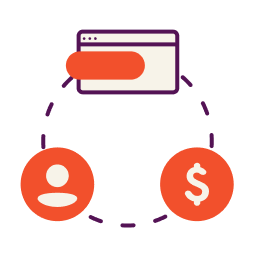As a business owner, you know that to make good decisions you need to know the facts. As human beings, though, our biases and assumptions can sometimes get in the way of facts. Recently, for example, I spoke with a successful business mentor who said she advises her clients to always avoid debt. While her intentions may be good, those clients may be missing out on significant opportunities to grow their businesses.
Here are five common small business financing myths that you may want to reevaluate:
1. My business is new so I can’t get financing.
Yes, it can be hard to get hard to get financing for a startup. But it’s not impossible.
There are a number of financing options available to young businesses. A micro-loan is one. A crowdfunding campaign is another. And here’s one that’s often quite easy to get: a small business credit card. As long as you have decent credit and sufficient income from various sources, you should be able to qualify for one of these card. While interest rates on small business credit cards aren’t the lowest (15 – 18% is typical), they are often less expensive than other types of financing available to startups. As an added bonus: the right credit card can help you build business credit.
2. I have bad credit so I can’t get financing for my business.
It’s true that you may have fewer options for financing than you would if you had good credit, but that doesn’t mean you have no options at all.
When a credit check is involved in a small business financing application, it will review one of the following:
- The owner’s personal credit scores. Personal credit checks are often used to evaluate applications for business loans from traditional lenders like banks. Non-bank lenders (such as online lenders) often check personal credit as well, but their minimum credit score requirements may be lower. Small business credit card applications will almost always require a review of the owner’s personal credit.
- Business credit scores. Business credit checks are often used when a business owner is requesting “trade credit” such as net-30 terms from a vendor or supplier. Other small business financing options may also involve a business credit report/check.
- Both personal and business credit. If you’re applying for an SBA 7(a) loans for $350,000 or less, your application must be prescreened using the FICO SBSS score which can include both business and personal credit information.
But there are times that credit scores don’t matter at all. Crowdfunding portals rarely involve a credit check. Invoice financing and many cash flow loans are primarily interested in business revenues or receivables, and may not even check credit. If they do, the threshold is often lower.
When both personal and business credit scores are strong, you have more types of financing available. But don’t assume that just because you don’t have great credit, you’re stuck bootstrapping your business.
3. Debt is too risky. Smart entrepreneurs bootstrap it.
Small business debt can be quite different from consumer debt. With many types of consumer debt, you often wind up paying interest on an item that loses value over time. With small business financing though, you may be able to leverage other people’s money to make more money. This may allow your business to take advantage of opportunities that you couldn’t otherwise afford.
For example, let’s say you come upon an opportunity to buy an inventory of a product you know you can sell at a significant profit but don’t have enough cash to pay for it right away. Or you discover a marketing approach that is extremely lucrative but requires you pay for online ads, direct marketing or even sales help upfront. Either of these opportunities require capital that you may not have readily available.
Sometimes you do need money to make money, and financing can bridge that gap.
Yes there may be risk involved. But whether financing is too risky depends on how you plan to use it, and the controls you put in place to help keep risk at a reasonable level.
4. My bank won’t give me a small business loan so I am out of luck.
Small business owners often think of their bank or credit union when it comes to getting a loan. As they should: small business loans (including SBA-guaranteed loans) often carry the best rates and terms. But just because you don’t qualify for one of these loans, that doesn’t mean you can’t qualify for something else. There are literally thousands of lenders and financing firms targeting small business.
The key is to understand what your strengths or weaknesses are before you start searching for financing. Do you have a poor personal or business credit but high revenues? Maybe you have great credit but you haven’t been in business long. Answers to these questions can help you hone in on the types of financing that may be available.
Make sure you know your personal and business credit scores, plus your monthly and annual revenues, before you shop for financing.
5. I can’t afford financing.
Yes, some types of financing can get very expensive. But there are low-cost options out there, including some microloans, bank loans, SBA loans, crowdfunding and even some business lines of credit and credit cards.
There is a kernel of truth in this myth, in that some business owners find themselves trapped in financing they can’t afford. It’s crucial that you understand the cost of any financing you’re considering to make sure you can still maintain the profitability of your business while you pay it back.
Sometimes that’s easier said than done. Commercial lenders aren’t required to disclose an Annual Percentage Rate (APR) and as a result it can sometimes be hard to figure how much financing will actually cost. Free business loan calculators can help you translate an offered rate to an APR, and to compare costs.
This article was originally written on March 29, 2018 and updated on October 20, 2020.



Have at it! We'd love to hear from you and encourage a lively discussion among our users. Please help us keep our site clean and protect yourself. Refrain from posting overtly promotional content, and avoid disclosing personal information such as bank account or phone numbers.
Reviews Disclosure: The responses below are not provided or commissioned by the credit card, financing and service companies that appear on this site. Responses have not been reviewed, approved or otherwise endorsed by the credit card, financing and service companies and it is not their responsibility to ensure all posts and/or questions are answered.